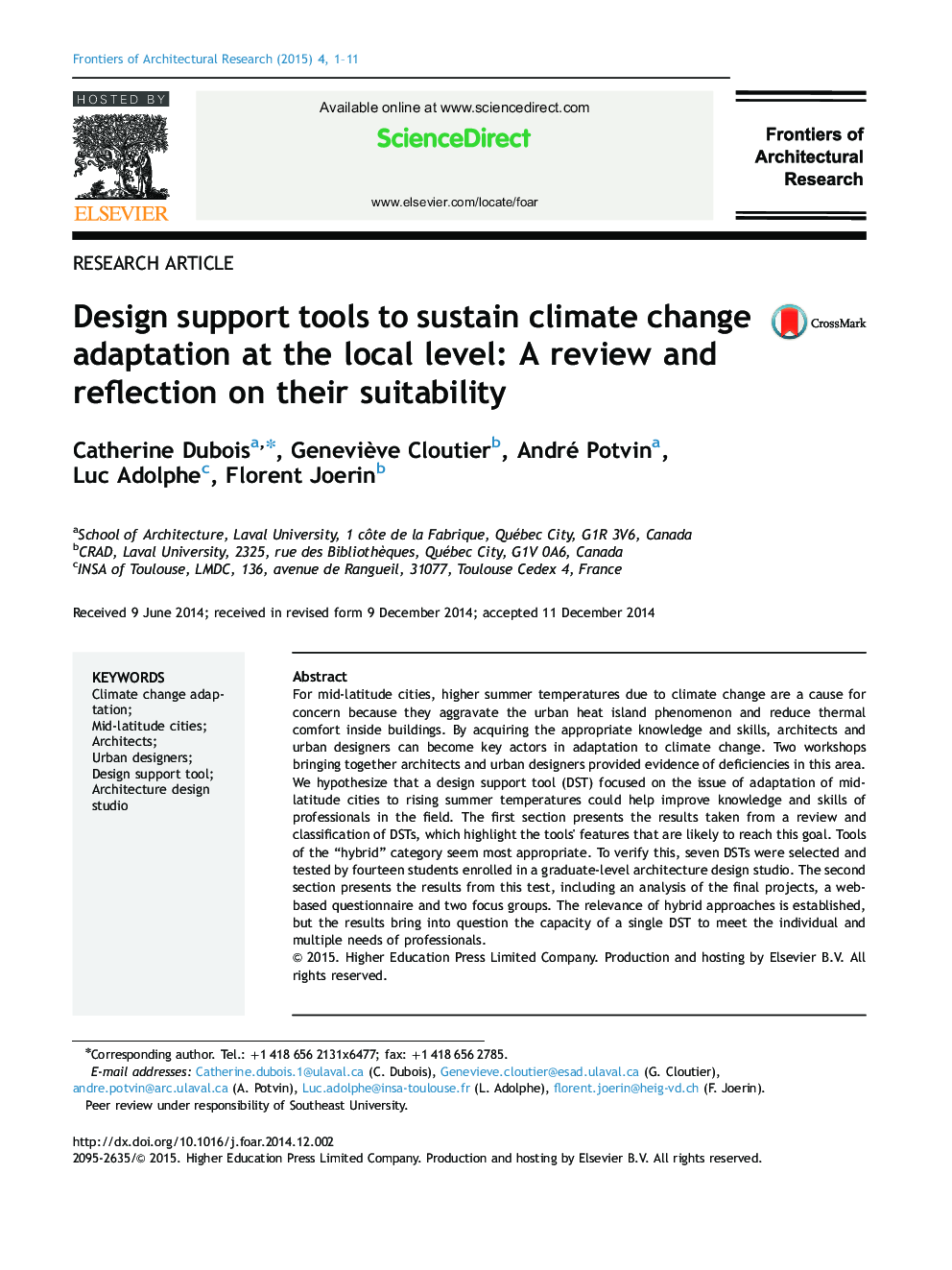| Article ID | Journal | Published Year | Pages | File Type |
|---|---|---|---|---|
| 270816 | Frontiers of Architectural Research | 2015 | 11 Pages |
For mid-latitude cities, higher summer temperatures due to climate change are a cause for concern because they aggravate the urban heat island phenomenon and reduce thermal comfort inside buildings. By acquiring the appropriate knowledge and skills, architects and urban designers can become key actors in adaptation to climate change. Two workshops bringing together architects and urban designers provided evidence of deficiencies in this area. We hypothesize that a design support tool (DST) focused on the issue of adaptation of mid-latitude cities to rising summer temperatures could help improve knowledge and skills of professionals in the field. The first section presents the results taken from a review and classification of DSTs, which highlight the tools׳ features that are likely to reach this goal. Tools of the “hybrid” category seem most appropriate. To verify this, seven DSTs were selected and tested by fourteen students enrolled in a graduate-level architecture design studio. The second section presents the results from this test, including an analysis of the final projects, a web-based questionnaire and two focus groups. The relevance of hybrid approaches is established, but the results bring into question the capacity of a single DST to meet the individual and multiple needs of professionals.
